The spelling ough
14 Replies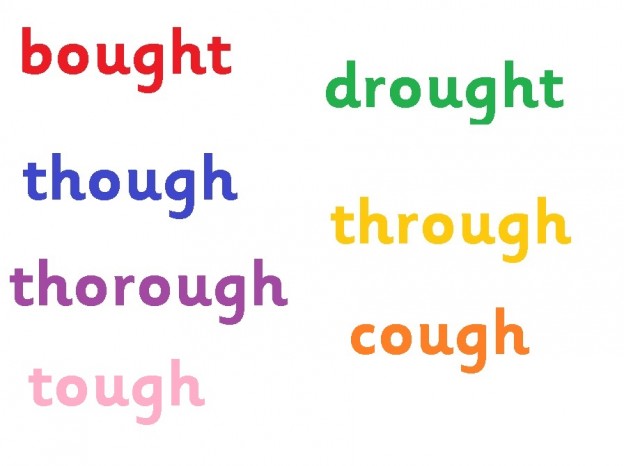
The spelling "ough" can be pronounced eight different ways in English.
Don't panic, there aren't many words, and some of them are so arcane I usually don't bother teaching them. But let's be fairly comprehensive here.
There are five different single sounds, and three sound combinations.
- "aw" as in bought, brought, fought, nought, ought, sought, thought and wrought iron.
- "ou" as in when the bough or the drought breaks, and the UK spelling of plough (in the US regularised to plow), as well as doughty old characters, the soughing wind and a deep slough of depression.
- "oh" as in dough, furlough and though, as well as doughnut and although, if you want to count them separately.
- "ooh" as in through.
- "uh" as in thorough and borough, and names like Gainsborough, Marlborough, Peterborough and Scarborough.
- "u" plus "f" as in rough, tough and enough, plus a snake sloughing off its skin.
- "o" plus "f"* as in cough, former Australian Prime Minister Gough Whitlam and a cattle trough.
- "u" plus "p" in hiccough, though nowadays many people seem to spell this hiccup.
That's it, as far as I know. Not so terrible after all.
* The "gh" spelling of the sound "f" is also used in the word "laugh", and goes after a vowel. Before a vowel, "gh" usually represents the sound "g" as in "Afghan", "ghost", "spaghetti" and "yoghurt".
Have a go spelling
13 Replies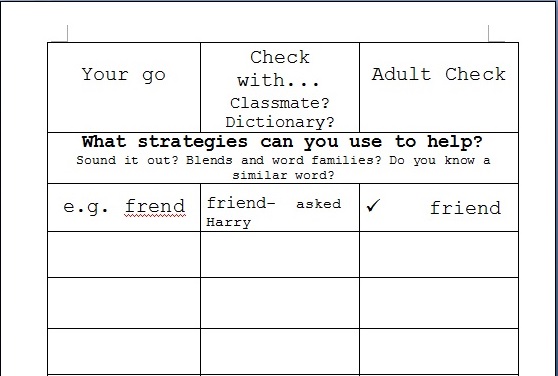
In class, many of the students I work with are encouraged to "have a go" at spelling words that they aren't sure how to spell.
Often this happens when they have spelt a word incorrectly in their first draft of a piece of written work.
The teacher then points out the error, but doesn't correct it.
Instead, the student is encouraged to problem-solve the spelling, by asking classmates, trying to sound it out, thinking about word families or similar words, or looking it up in a dictionary.
If you google "have a go spelling", you can even find a free workbook for this purpose. The front of it looks like this (the fonts are a bit out of whack because I don't have the SA school font, but it is an MS Word document so this could be easily fixed):
The remaining pages have three columns: one for the word as misspelt, one for the student's "go" and one for the correct spelling as checked by an adult.
Free spelling book
2 Replies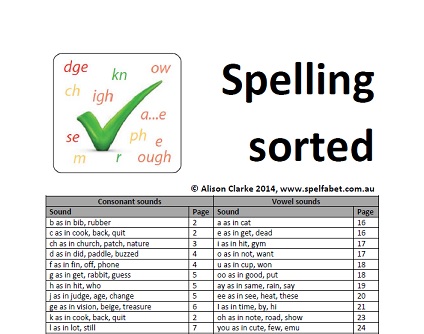
I’ve been trying to think of ways to help teachers organise their thinking about sounds and letters, and make teaching children about sounds and spellings seem interesting, finite and do-able.
Years ago I went through the whole dictionary and sorted it by sound (phoneme) and spelling pattern (grapheme), and made a spiral-bound booklet of spelling lists for myself called Spelling Sorted.
This put examples of every spelling pattern at my fingertips.
Showing learners the patterns
It let me confidently demonstrate to learners both the major patterns (like the “ai” in “rain”, “sail” and “maid”), and unusual ones (the “ai” in “said”, and also “again” and “against”, if you have an Australian accent like me).
It let me show learners how some spellings are shared by more than one sound, e.g. the “ou” in “shout”, “soup”, “country”, “soul”, “cough” and even “ouija” (incidentally, a word created by putting the French and German words for “yes” together).
It also helped me explain to learners that English spelling is complex because English is made up of words from many languages. For instance, the “ph” in “phone”, “elephant” and “alphabet” is usually in words that come from Greek, and the “é” in “café”, “paté” and rosé” is usually from French, and words with “ng” like “sing”, “long” and “hang” are usually Germanic-origin words brought into English very early by the Angles, Saxons, Jutes or Vikings.
Spelling Latin endings
10 Replies
Words with Latin endings can be confusing to spell. To get a handle on them, I like to organise them into groups:
“sh” sound Latin endings
- Many, many words have the sound “sh” spelt “ti” as in “action”, “cautious” and “patient”.
- Some others are spelt with “ci” as in “special”, “magician” and “vicious”.
- A third group are spelt with “si” as n “mansion”, “tension” and “extension”.
- A fourth group are spelt with “ssi” as in “mission”, “passion” and “discussion”.
Some spelling reformers would have us spell all these words with “sh” – “acshon”, “speshal”, “manshon”, “mishon” etc, like rappers do. But I hope this table makes their current spellings seem more logical:
Multisyllable words
4 Replies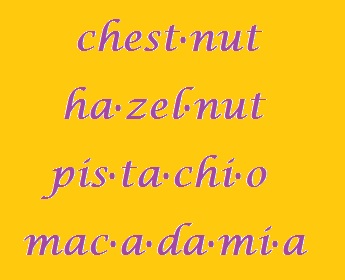
Breaking up multisyllable words
When first introducing multisyllable words to learners, I like to break them into separate syllables with little dots, like this:
crick·et ba·na·na hel·i·cop·ter hip·po·pot·a·mus
Dots are more subtle than hyphens or spaces, but help beginners to see the syllable boundaries, and know where to stop and blend each "mouthful" of the word.
I don't ask learners to put these dots in themselves when writing/spelling, I just put them in new words for the first time a learner reads them.
What makes multisyllable words harder?
As well as all the skills required to read and spell one-syllable words, learners reading multisyllable words have to:
- Work out where one syllable ends and the next one begins,
- Learn the many extra spelling patterns used in multisyllable words e.g. the "ti" in "action", the "y" in "funny" and the "age" in "luggage",
- Keep all the syllables in memory long enough to say each whole word,
- Work out whether any of the syllables are unstressed, by trying out different stress patterns.
The unstressed vowel
6 Replies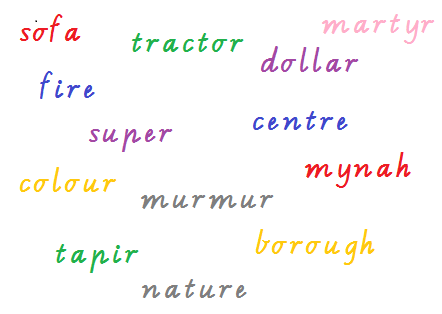
One of the hardest things about spelling words with more than one syllable is managing the unstressed vowel (called “schwa” by linguists).
The unstressed vowel is the little “uh” sound we say in “weak” syllables, like the “er” in “water”, the “ar” in “liar”, the “or” in “tractor” or the “a” in “China”. It can be spelt using just about any vowel spelling.
If learners are introduced to long words too quickly, before they have grasped the major vowel spellings in one-syllable words, they can think that this vowel is an “u” sound as in “cut”.
This can make them very confused about how to spell this sound, and how to spell long words generally, since this sound seems to be everywhere in long words.
Another thing which can be really confusing when learning to spell words with more than one syllable is identifying syllable boundaries.
A syllable can be just one letter, or it can be half a dozen or more. Learners need to familiarise themselves with which patterns indicate the end of a syllable, and how to munch their way through long words just one mouthful/syllable at a time, not try to swallow words whole.
How English spelling works
1 Replies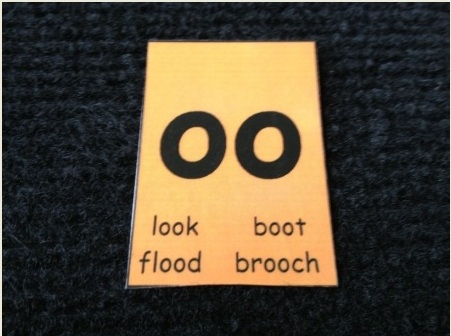
To celebrate the start of 2013 school year, I've made a little video on YouTube which gives a conceptual overview of the English spelling system.
This is a version of a pep talk I often give to older struggling learners, with three aims:
1. To reassure them that there's a good reason why they're struggling – the English spelling system is complicated,
2. To reassure them that there are learnable patterns and order in the apparent chaos of the English spelling system, they just need it broken down into small, digestible pieces and then to work through it in a systematic way, as many learners do. We discuss whether they've ever had literacy presented to them in this way before, and find they usually haven't.
3. To get their heads around some of the key ideas of the English spelling system, like:
- Sounds having to share letters because there aren't enough letters to go around,
- Words coming from many different languages, so that often one spelling has a few sounds, and
- Up to four letters (caught, eight, drought, straight) being able to work together to represent a single sound.
The video runs for about 15 minutes, and again it was put together by my wonderful sister Cath (thanks, Cath!).



